Ask three different people in India who the strongest god is, and you’ll get at least four different answers. That’s the wild magic of Indian mythology: there’s never just one story. If you dive into these ancient tales, it’s not long before you’re tangled up in epic arguments where gods hurl mountains, freeze time, swallow poison, or casually create universes for fun. All while their followers endlessly debate, who’s the real top dog?
The Big Players: Power, Paradoxes, and Legends
The strongest god in Indian mythology depends on who you're asking and when. There’s no official list, but a few names are always thrown around at the chai stall or during late-night family debates—Shiva, Vishnu, Brahma, and, occasionally, some wild cards like Durga, Kali, or even Ganesha. Each of them isn’t just known for muscle but for special kinds of might that make the concept of ‘strength’ pretty complicated.
Shiva, famously known as the Destroyer, is the go-to for sheer, unfiltered power. He’s someone you don’t want to mess with—his dance, the Tandava, can end the whole universe. But then, Vishnu, the Preserver, is less about smashing things and more about keeping the cosmic system running, saving the world whenever it’s in danger by taking on different forms (avatars) like Krishna or Rama. Brahma, on the other hand, is said to have created everything, which seems like the ultimate flex on power if you ask anyone who’s ever tried to fix a broken chair, let alone make an entire cosmos.
And then there are goddesses that completely change the game. Durga, for example, is summoned when all the male gods fail. She defeats demons everyone else can’t handle, riding a lion and juggling ten weapons at once. Kali, her fierce aspect, goes on rampages against evil that even Shiva himself is sometimes scared of. These tales don’t hide from the scary bits—they celebrate it.
But here’s the twist—none of them is always the ‘winner.’ Stories love to swap who's the strongest depending on the situation, the era, and even the audience. The Mahabharata and Ramayana—two of India’s oldest epics—love to showcase strength as something more than throwing lightning bolts or smashing demons. Sometimes, the strongest is the one who can resist temptation, forgive enemies, or sacrifice everything for the world.
Shiva vs Vishnu: A Cosmic Rivalry
No debate about the strongest god is complete without getting into the epic face-off between Shiva and Vishnu. The fan bases for each are enormous, and they’ll defend their favorite with passion you’d usually reserve for rugby finals here in Wellington.
Shiva’s got the classic ‘bad boy’ reputation. He lives far from the city, covered in ashes, hanging out with snakes, and meditating in the Himalayas. But look closer and he’s also the most down-to-earth—he listens to prayers from anyone, even demons and outcasts. And when the universe gets out of hand, Shiva steps in: the legend of the churning of the ocean (Samudra Manthan) has him gulping lethal poison to save the cosmos. Who else would risk it all, literally turning his throat blue and earning the nickname Neelkanth?
Vishnu, meanwhile, plays the long game and often avoids direct showdowns. He’s the master strategist, popping into the world as various avatars to solve problems in wildly creative ways—think cosmic undercover boss. In the form of Krishna, he gives Arjuna the Bhagavad Gita before a massive battle, changing Arjuna’s life and arguably saving the world in the process. In another avatar, Vamana, he brings down a tyrant demon king by measuring the universe with three giant steps. Subtle, but brutal in its own way.
It’s hard to overstate how deep this rivalry goes. Some regions of India swear by Shiva, while other parts put Vishnu front-and-center in festivals and temples. In fact, there’s even a team-up version called Harihara—a form that’s literally half Shiva, half Vishnu—just to keep the peace among their fan clubs and show that in the grand scheme, they’re two sides of the same cosmic coin.
| God | Main Role | Signature Power | Iconic Story |
|---|---|---|---|
| Shiva | Destroyer | Dancing away the universe, swallowing poison | Tandava, Samudra Manthan |
| Vishnu | Preserver | Transforming into avatars | Krishna in Mahabharata, Vamana vs Bali |
| Brahma | Creator | Creating entire cosmos | Birth of the universe |
| Durga | Protector/Warrior | Defeating demon armies | Mahishasura Mardini |
| Kali | Destroyer of Evil | Berserk fury, ends evil eras | Kali vs Raktabija |
The most fascinating bit? While these ancient rivalries seem set in stone, new tales keep emerging that describe the gods as collaborators or even as part of a single, giant, formless reality—Brahman—hinting that all these arguments over who’s strongest might actually miss the point.
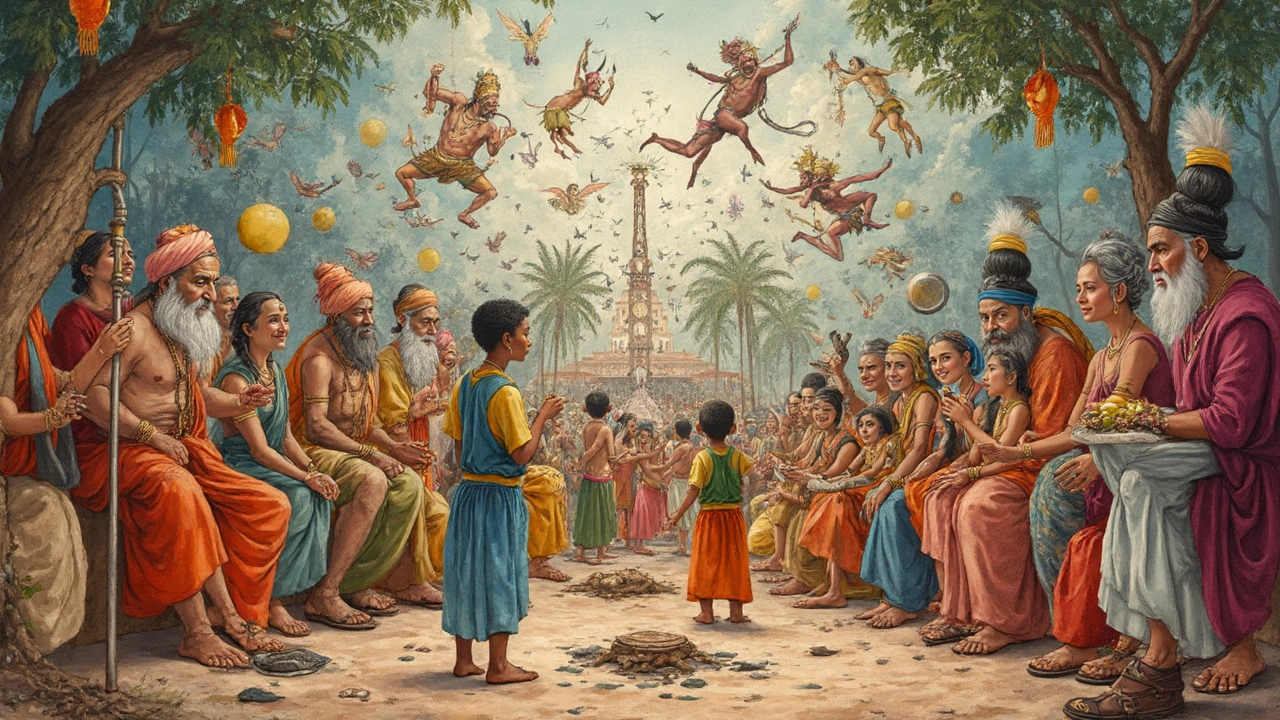
Strength Beyond Muscles: Tricksters, Wisdom, and Out-of-the-Box Power
The Indian pantheon isn’t just about brute force. Some of the most jaw-dropping feats come from gods and goddesses breaking the rules, outsmarting enemies, or re-writing the definition of victory itself.
Take Krishna. He’s famous for more than fighting—he wins battles long before they start, spinning illusions and using wit to undermine power-hungry villains. The Mahabharata is packed with examples: Krishna turns a legal technicality into a trick that lets Arjuna hit the supposedly invincible Karna. Some folks call this bending the rules; others see it as outsmarting evil. Either way, it’s a new kind of strength that doesn’t care about the size of your army or your biceps.
Ganesha, the elephant-headed god, is another contender. In a famous story, he and his brother Kartikeya race around the world, but Ganesha simply walks in a circle around his parents. When asked why, he says they mean more to him than the actual world—and the universe is contained within them. Win by wisdom, not by speed. It’s that kind of upside-down logic that leaves you thinking: maybe being smart is the ultimate superpower.
And don’t discount the goddesses. Saraswati, goddess of knowledge, quietly keeps everything working. Without her, even the mightiest warriors would be fighting blind. Her legends remind people that strength comes from the mind as much as from the body. In fact, the concept of Shakti puts goddesses at the literal heart of everything powerful: they’re the energy fuel behind every god’s biggest flex.
If anyone ever tries to nail down a single ‘strongest’ god, these stories push back. They blur the boundaries, swapping brute strength, mental agility, and self-sacrifice to create a world where power is shared, exchanged, or sometimes hidden entirely. This diversity is what’s kept Indian mythology alive and talked about for thousands of years.
Why the Debate Matters: Myths, Identity, and Modern Life
This never-ending tug-of-war about godly strength isn’t just ancient history—it’s something that shapes people’s lives every day. In India, families still gather for late night debates after a big meal, festivals light up cities to honor different deities, and stories are retold, reshaped, and even meme-ified online.
How you answer, “Who is the strongest god?” can say a lot about your own background. Different regions pick their favorite gods, with massive annual festivals thrown for Shiva in Varanasi or for Vishnu as Venkateswara down south. And during Durga Puja in Bengal, it feels like all the old rivalry stories between gods just hit pause—everybody’s got their eyes on Durga.
Kids swap stories of Hanuman leaping mountains or the fierce mother goddess throwing down against evil. These tales get passed down with tweaks and surprises, making them as much about the storyteller as the character. Priests, poets, and even Bollywood movies repackage these themes for new generations, showing just how flexible mythology is.
If you’re picking up tips for life from all this, you’d probably notice a few handy ones: strength wears different faces; brains can outmatch brawn; sometimes, being destructive is exactly what saves the world. Even scientists sometimes use these stories as metaphors. Indian nuclear reactors are named after powerful gods; social movements borrow goddess symbolism to frame modern women’s power.
For anyone obsessed with power rankings—who’s the Hulk, who’s Superman—Indian mythology humbles you. It doesn’t hand you a single winner on a platter. Instead, it asks better questions: What is real strength? The answer seems to be always changing, depending on what the world needs: a fierce warrior, a cosmic fixer, or a calm teacher who can change hearts, not just destinies.
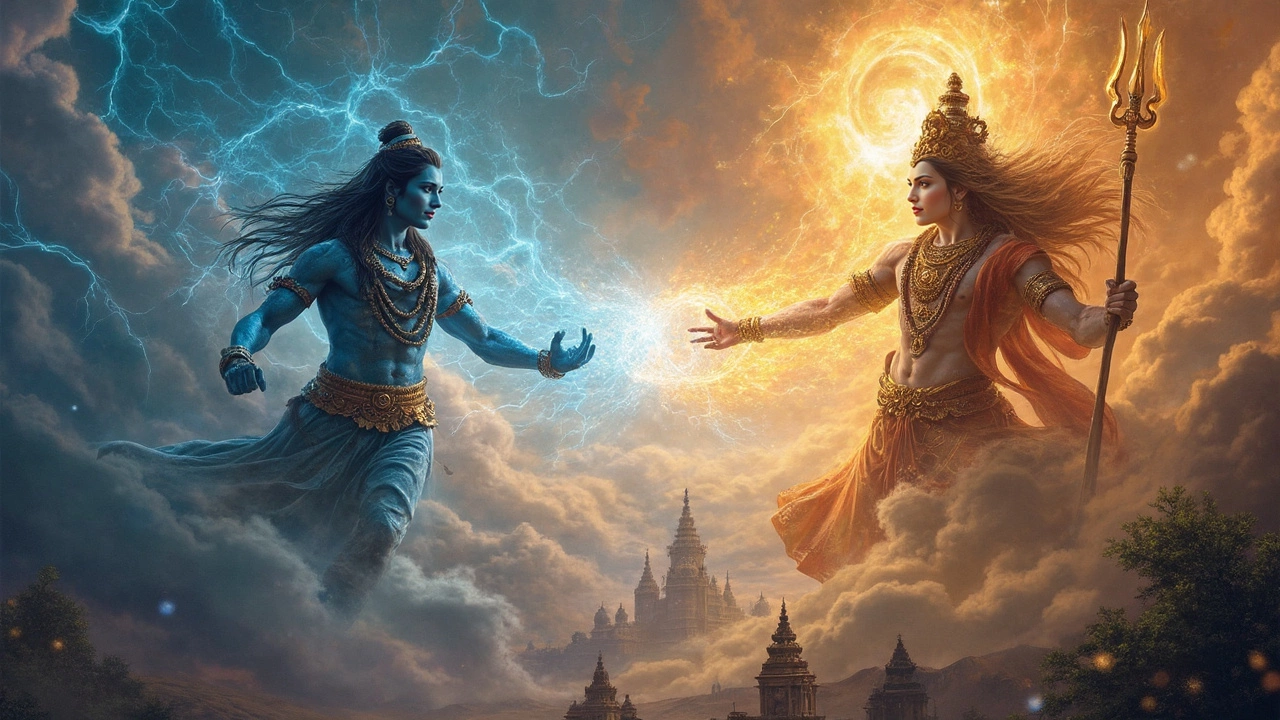
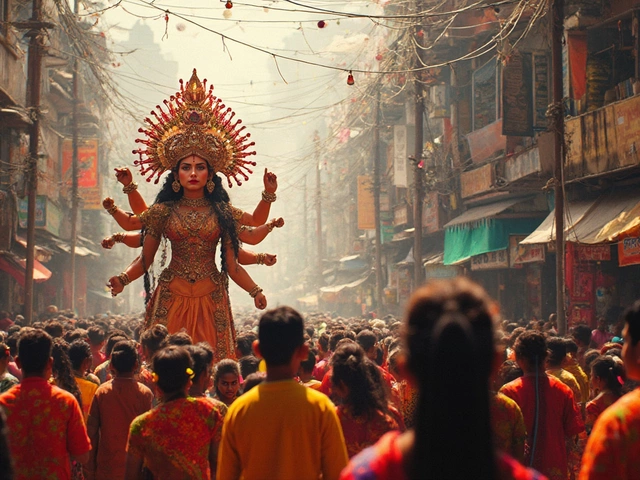
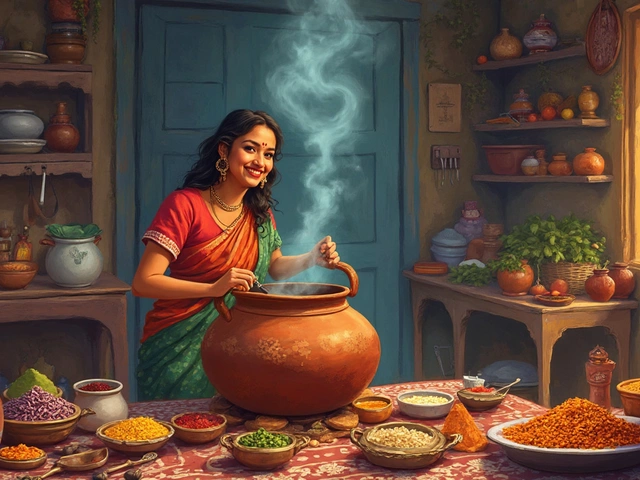
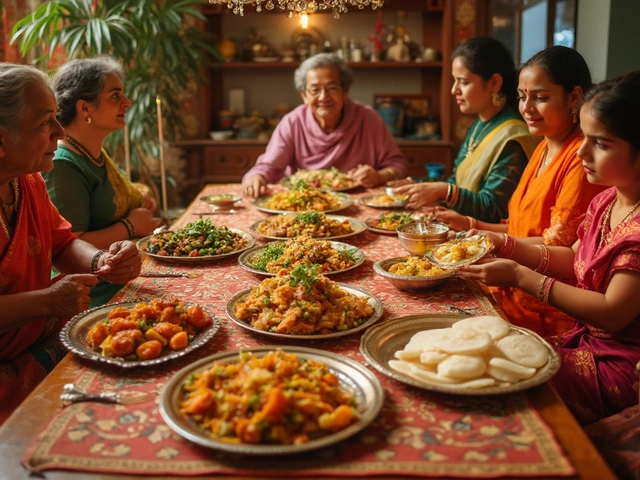
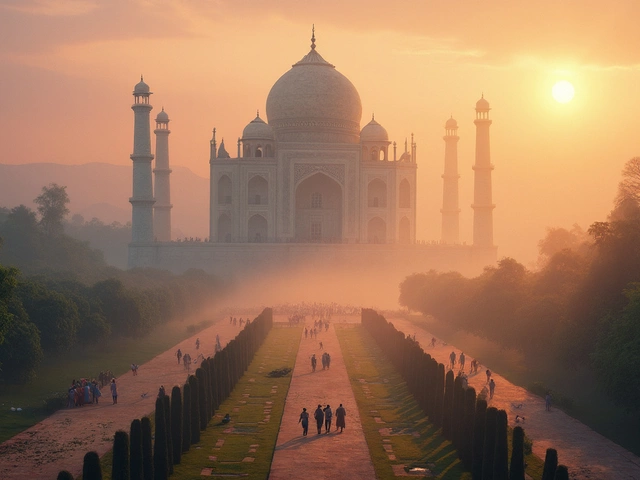
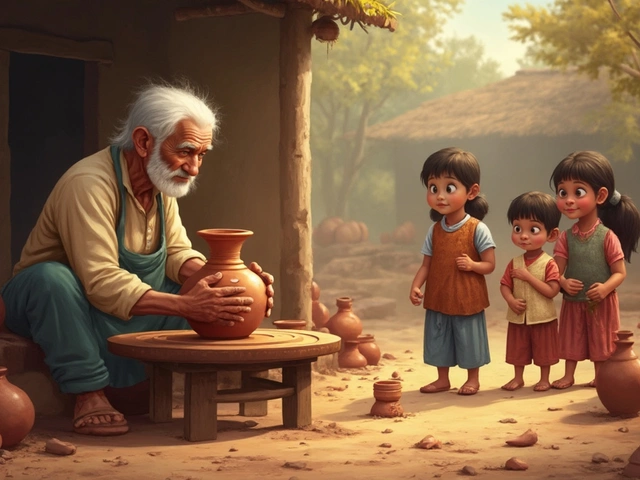
Write a comment